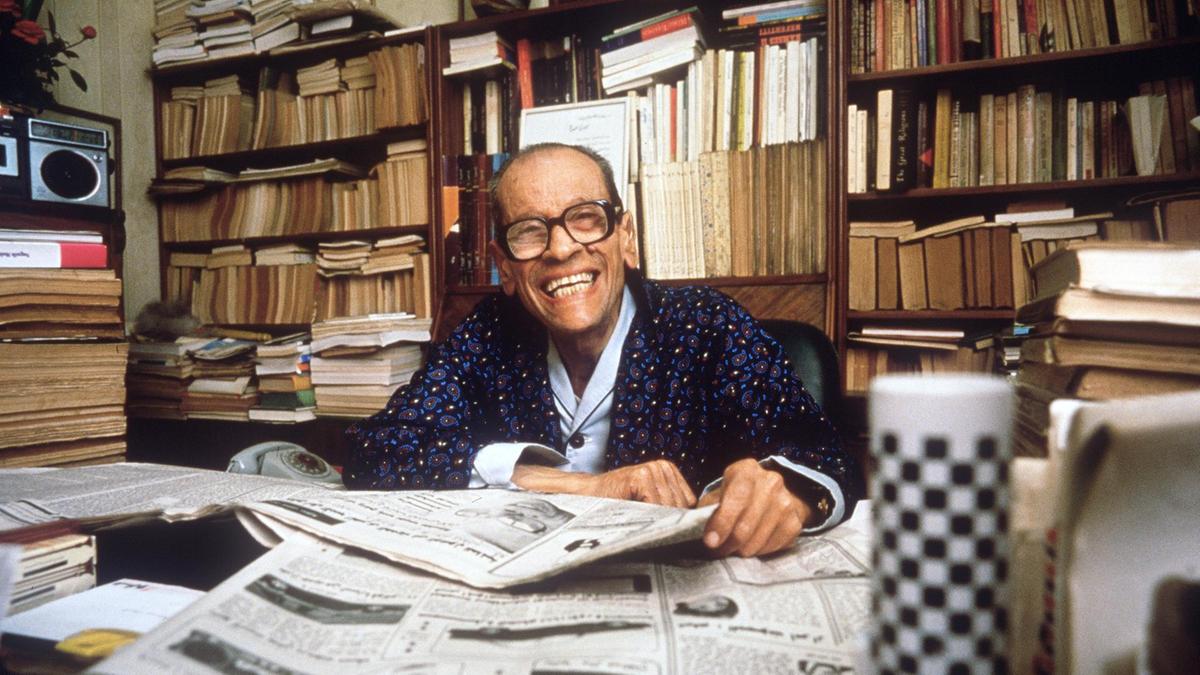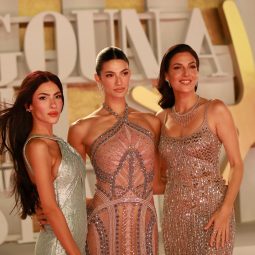via El Youm 7
On August 30th, 2006, Egypt bid farewell to one of its greatest novelists, Naguib Mahfouz. As we mark 18 years since his passing, we celebrate Mahfouz’s extraordinary contributions to literature and cinema. Known for his compelling storytelling and insightful exploration of Egyptian society, Mahfouz's novels have captivated readers and been vividly brought to life on screen. This article explores some of the most notable film adaptations of his works and their impact.
Additionally, the Cultural Development Fund announced that the Naguib Mahfouz Museum will be open to visitors for free until the end of August 2024, in celebration of the anniversary of his passing. For more information on the Naguib Mahfouz Museum, check out this article!
Zoqaq El Madaq (1963)
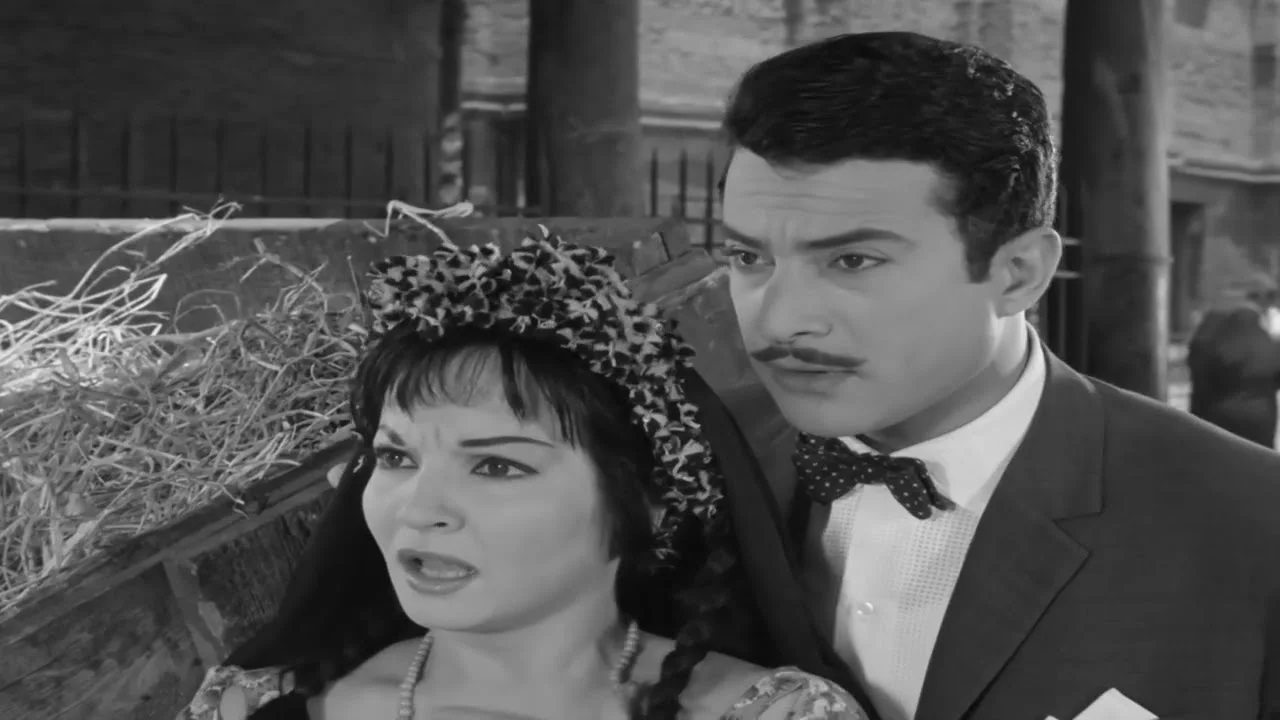
Zoqaq El Madaq is one of Mahfouz's renowned novels adapted into film in 1963. Directed by Hassan Al Imam, the film portrays the lives of residents in a bustling Cairo alley, showcasing their struggles, dreams, and conflicts. The adaptation effectively captures the novel’s detailed depiction of urban life and social issues, resonating with both audiences and critics.
Al Tareeq (1964)
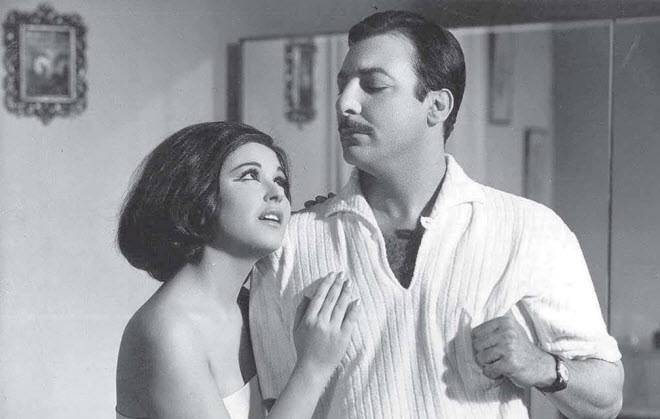
Al Tareeq, adapted from Mahfouz’s 1955 novel, addresses themes of poverty and social mobility. Directed by the acclaimed Salah Abu Seif, the film features Shadia in a significant role. Shadia’s performance is crucial in illustrating the characters' challenges and reflecting the novel’s exploration of social issues.
Al Qahira 30 (1966)

Al Qahira 30 adapts Mahfouz’s 1966 novel and was directed by Salah Abu Seif. The film stars Soaad Housny and explores Cairo’s socio-political turmoil during the 1930s. Housny’s performance highlights the characters' struggles against a backdrop of political change, capturing Mahfouz's critique of societal corruption and instability.
The Cairo Trilogy: A Literary and Cinematic Milestone
1- Bein Al Qasrien (1964)

The first novel in Mahfouz's Cairo Trilogy, Bein Al Qasrien, was adapted into a film by the same name. Directed by the acclaimed filmmaker Salah Abu Seif, this adaptation captures the essence of Mahfouz's portrayal of early 20th-century Cairo. The film reflects the socio-political dynamics of the era, offering a glimpse into the complex lives of the family at the heart of the novel.
2- Qasr Al Shouq (1967)
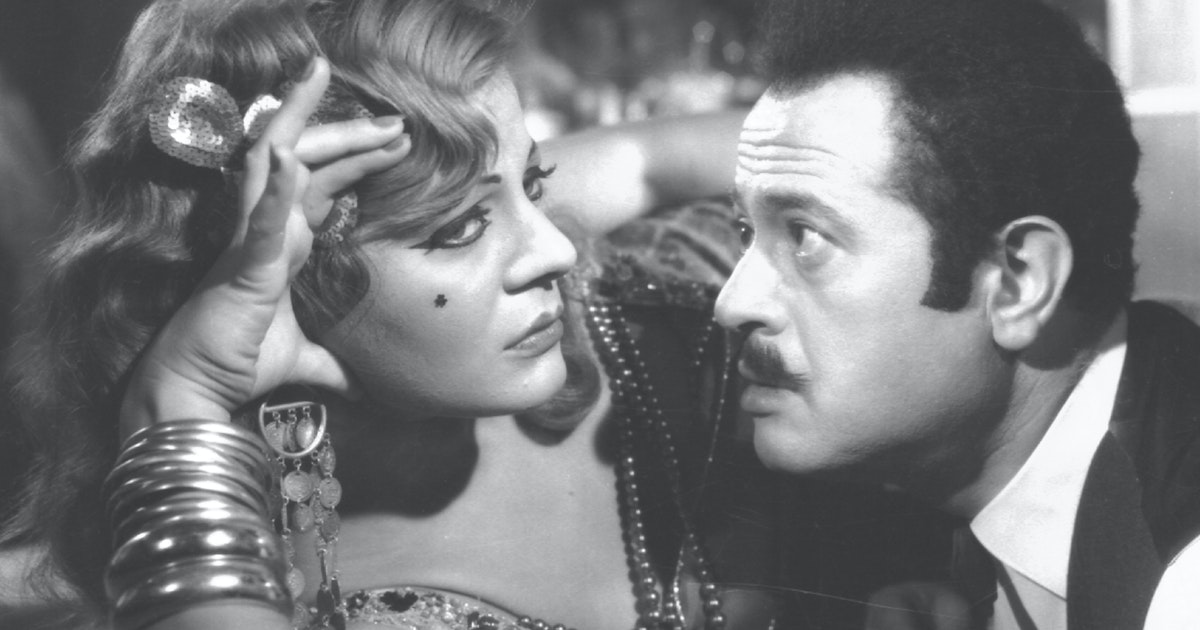
The second instalment in the Cairo Trilogy, Qasr El Shouq, was also adapted into a film. This adaptation continues to explore the rich narrative of the trilogy, focusing on the evolving relationships and societal changes affecting the characters. While the film's reception was mixed, it remains integral to the trilogy's cinematic journey.
3- Al Sokarya (1973)
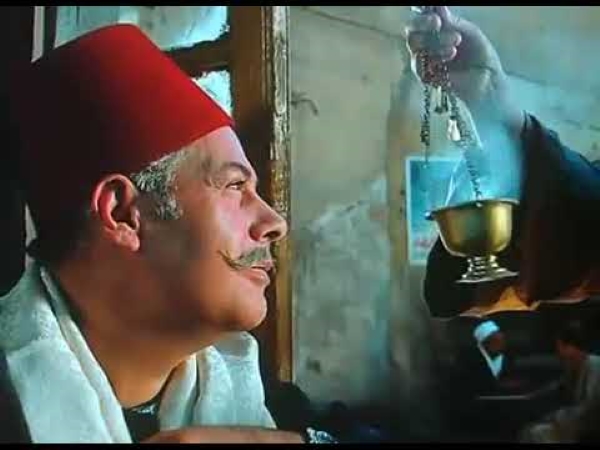
The final book in the Cairo Trilogy, El Sokarya, was similarly adapted into a film. This concluding part wraps up the generational saga with a deeper focus on the themes of change and continuity within Egyptian society. The film adaptation successfully brings Mahfouz's epic conclusion to life, showcasing the social and cultural shifts of the time.

